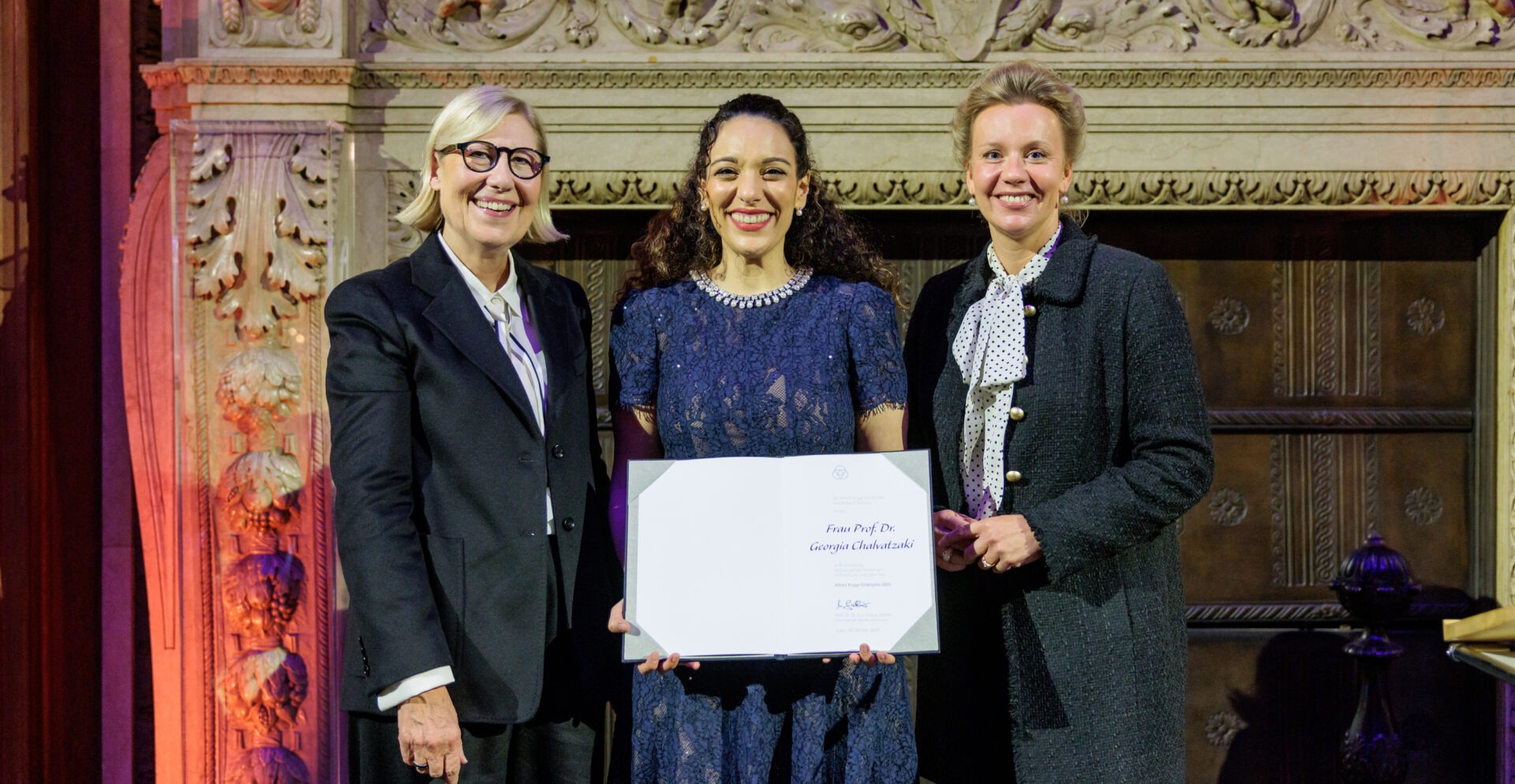
Computer Scientist Georgia Chalvatzaki Awarded the 2025 Alfried Krupp Prize
The Alfried Krupp von Bohlen und Halbach Foundation has awarded computer scientist Prof. Dr. Georgia Chalvatzaki the 2025 Alfried Krupp Prize, one of the most prestigious scientific awards in Germany. The 37-year-old has held the Professorship for Interactive Robot Perception and Learning in the Department of Computer Science at Technische Universität Darmstadt since 2023. In total, the selection committee of the Alfried Krupp von Bohlen und Halbach Foundation considered 42 nominations from across Germany.
The award, endowed with € 1.1 million, was presented by Ina Brandes, Minister for Culture and Science of the State of North Rhine-Westphalia, during a ceremonial event at Villa Hügel. The keynote lecture was delivered by Prof. Dr. Mirjam Wenzel, Director of the Jewish Museum Frankfurt, on the topic: “The situation calls for a courageous effort. Albert Einstein’s reflections on the world of today and tomorrow.”
“We are delighted to honor Prof. Georgia Chalvatzaki with the 2025 Alfried Krupp Prize,” said Prof. Ursula Gather, Chairwoman of the Board of Trustees of the Krupp Foundation. “Her ambitious research in artificial intelligence, machine learning, and robotics has the potential to make a significant impact in fields such as healthcare, logistics, and sustainable agriculture. Through her innovative approach, she considers robots, humans, and their environment as an integrated system, with the aim of developing robots that learn from experience and continuously adapt their behavior. This approach fosters trust in technology.”
Prof. Dr. Georgia Chalvatzaki’s research focuses on robots capable of learning from real-time interaction with their environment and with humans. Her pioneering work is shaping a human-centered vision of robotics, paving the way for a new generation of intelligent robotic systems.
